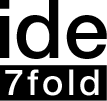2008 teachings salusjärvy
orivesi college of art, orivesi, finland, november 2008.
--------------------------------------------------------------------------------------------
aleksis salusjärvy:
”teaching is one form of poetry” – and other pen-escaping notions of poetry from ide hintze
renowned performance and poetry artist ide hintze gave a course at the orivesi college of arts on the basics of unwritten poetry: “to be a poet, you do not have to write.”
compared to the typical finnish way of teaching poetry, the method of ide hintze, founder of the vienna poetry school (schule für dichtung), is intriguing. he surely is a cosmopolitan, who seems to be faithful to the idea of poetry as a wide, global phenomenon. his way of thinking is unique: poetry is action, having physical dimensions, which is quite contrary to the common conception of poetry as a syntactic art of written words.
hintze's method of teaching is based on process. in fact, for him, teaching is a form of poetry. the intention of the process is to open or widen the usually narrow concept of poetry. the course at orivesi started with students listening to hintze's own works, comprised of 'nonsensical' or non-semantic language. hintze is interested in poems whose content is mainly based in phonemes and rhythms – pre-symbolic phonetics.
according to hintze, this pre-symbolic quality is common to all poetry and should be taken as a basic approach to conceiving poetry. poems make meanings that transcend language. but what is the process behind the birth of a poem? does it need to be fully aware to be fully experienced? "usually the artist has no exact knowledge of the work's exact process", says hintze.
written poetry, and something else
poetry performances and sound poetry are the areas where hintze is mainly operating nowadays. he declares the return of oral poetry, pointing out that the degeneration of the tradition started already in the antiques when the spoken poem became transcribed. "socrates was one of the last representatives of the oral tradition."
while many things were gained with writing, some were lost. hintze points out: "over the course of centuries, poetry has dismissed the body and the voice - they have become absent." according to him, new media can be used to change this situation.
the present age can be seen as an era of changing cultural codes: poetry born in writing chambers is accompanied by a yet unnamed area of poetry. it can be loosely dubbed as multimedia. the change is visible in new schools of poetry. "we have to re-define poetry. written poetry will not perish, but beside it will bloom something else. we have to be active and scrutinize the possibilities it has yielded.
the greatest poets for hintze are sappho and rimbaud. for him, the poetry of the latter bears an echo that is still audible today. hintze's provocative claim is that only now can we start to redeem the promises of rimbaud's poetry.
universal poetry
ide hintze's main interest is to go around the world visiting international poetry festivals. the most vital scene is to be found in columbia, where 2000 people can easily attend a performance. the records has been something like 8000 friends of poetry, listening to the performers for hours on end, silently focused on the acts. "there is something weird to it", says hintze. "usually they do not even speak the performer's language, but still they might memorize the poems."
according to hintze, the columbian culture differs totally from europe, so much in fact that it is sometimes hard to understand. death is present everywhere, and the quotidian life is constantly participating in a culture of death of some sort. for example, a lethal explosion, killing 40 people at a place near the hotel where hintze was staying, did not greatly affect the locals.
international festivals grounded hintze's growing interest for combining performance with poetry. he started to be intrigued by performances that would not need to be translated - poetry that could come across to people regardless of language. when asked if these kind of poems are different in different areas or languages (for example, in phonemic or acoustic natures that could hint at their pre-semantic origins), the answer was no. sound poetry is universal.
after the course, it has become easy to agree on the view that teaching is one form of poetry. one does not feel educated or instructed – rather, one feels to have participated in a large work of poetry.
(aleksis salusjärvy: "teaching is one form of poetry", in: särö, a review of literature and culture, 4/2008. porvoo, finland, december 2008 / april 2009. original language: finnish http://sarolehti.net/x9_saro408.php)
